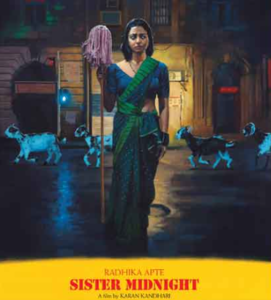English Vinglish: Did It Age Well?
A man whose first words in the morning to his wife are always a barked order, “Shashi, chai!” is not a man worth redeeming in my opinion. I am on the side of “dump him” feminists. But English Vinglish is a movie that revels in surprising the audience. “Often father and daughter look down on mother (woman) together. They exchange meaningful glances when she misses a point. They agree that she is not bright as they are, cannot reason as they do. This collusion does not save the daughter from the mother’s fate.” This quote by psychologist Bonnie Burstow from “Radical Feminist Therapy: Working in the Context of Violence” has stayed with me since the day I first read it.
In the opening scenes of English Vinglish, we see this routine play out as the daughter and father make fun of Shashi (played by Sridevi) for mispronouncing the word “jazz.” Many of us are guilty of looking down at homemakers and mothers while growing up. We witness the simultaneous glorification and belittling of domestic labor by women in our society. And it’s all a confusing mess.
Societal Expectations: The Burden on Women
Our “sanskaar” and traditions demand that a woman behave just like Shashi does. She should wake up before everyone else, serve people different foods according to their needs, take care of the house and children, and leave her hot coffees to grow cold as others’ needs take precedence. And nowadays, have a small business, part-time job, or side hustle that doesn’t take focus away from her household responsibilities. Shashi does all of these things like clockwork, yet she is not respected.
The Hidden Struggles: Subjugation Disguised as Concern
Like many mothers and wives, her household labor is taken for granted. Her subjugation is disguised in concern, control disguised in compliments. When her husband tries to get Shashi to give up her laddoo-making business, he says, “Tere haath ka khaana sirf mere liye hai. Doosre kyu maza lein? (The food you cook is only for me. Why should others enjoy it?)” Even her sole avenue of freedom and passion rankles the husband. Individuality among women is always a scary prospect to the stability of patriarchy. Only when Shashi reaches New York does her English teacher tell her that she is an entrepreneur. The same business that was dismissed so easily by her family as inconsequential is finally recognized. And Shashi learns that it is something to be proud of.
Gender Dynamics: Subtle Depictions by Gauri Shinde
I really liked how writer-director Gauri Shinde depicted gender dynamics in subtle ways. An excellent example are the scenes during Amitabh Bachchan’s special appearance. As he and Shashi are seated next to each other on an airplane, you start to notice how differently men and women occupy public spaces. He is loud and brash, not afraid to make his presence known—“bindaas” as he calls it. Meanwhile, Shashi makes herself as small as possible. Even when she wants to express joy, she hides herself under a blanket, as if her enjoyment also needs to be as unobtrusive as possible. A few days later, though, she starts to find her confidence. She dances on the street, even letting out a whoop with a Michael Jackson signature dance step.
Challenging Gender Norms: Cooking and Its Perception
I also love the conversation with Laurent where Shashi points out, “Mard khaana banaye toh kala hai, aurat banaye toh uska farz hai. (When a man cooks, it’s art; when a woman cooks, it’s her duty.)” Restaurants everywhere are dominated by male chefs. And this is a universal observation that can be extrapolated to a variety of industries. The same skills that billions of women execute in the household on a daily basis without compensation become “professions” when men use them.
Finding Support: Safe Spaces for Women
Laurent and Radha (Shashi’s niece) presented a safe space for Shashi to voice the injustices of womanhood and motherhood. On the other hand, Shashi’s husband is perhaps a representation of patriarchy condensed into one person. His overall behavior is so vile that I keep screaming internally for Shashi to break free every time I watch this movie. But Shashi, even as a fictitious character, can do anything she wants with her newfound agency. So she chooses to throw a wrench in the established patterns of her marriage and emerges confident that loving herself would change the dynamics of her familial relationships too. Good for Shashi, even if cynics like me will take that resolution with a pinch of salt.
Conclusion: English Vinglish Did It Age Well?
Not only has English Vinglish aged well, but it remains pertinent and relatable 12 years later. Our society is still far behind on the road to recognizing the personhood of women. And the film managed to address homophobia and the politics of language as well! The final message is not just about gender roles and relationships but also about the very philosophy of human connection. All you need is empathy—the basic language of our species that many have forgotten to speak. And so this movie makes you feel things; it “shows” rather than “tells.” I found myself crying, sobbing, bawling. English Vinglish is all heart. Thank you, Gauri Shinde. We miss you, Sridevi!
Related Articles
- Heroine: Did It Age Well?
- Did Wake Up Sid Age Well?
- Baghban: A 21 Year Retrospective
- Sholay: Did It Age Well?






